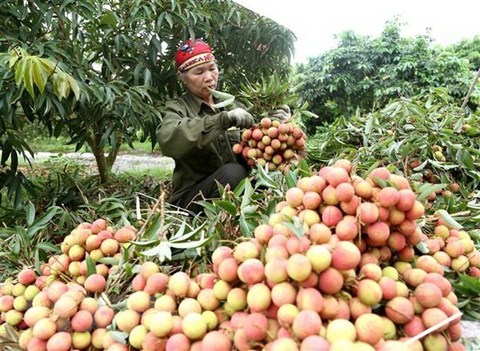
Exports of produce to China have shrunk this year due to COVID-19. – VNA Photo Vu Sinh
With China making regulations for fruit and vegetable imports more stringent, Vietnamese businesses need to pay close attention to the changes and comply with them, experts told a conference in HCM City yesterday.
According to Ta Quang Kien, acting director of the Agricultural Products Processing and Market Development Department’s agriculture produce commercial policies division, China imports US$9-10 billion worth of fruits and vegetables annually and accounts for more than 70 per cent of Viet Nam’s exports.
However, “Viet Nam’s vegetable and fruits exports to China fell by 25.9 per cent in the first nine months of the year.” Besides, growth in exports has been declining since 2015.
Nguyen Quang Hieu, head of the plant protection department’s international co-operation division, said China was tightening control over its produce imports and their quality, and requiring exporters to declare farming zone codes and packaging facilities.
China is also working with Viet Nam on updating export protocols for eight of the nine fruits that the latter is able to export, namely dragon fruit, watermelon, banana, rambutan, lychee, jackfruit, longan, and mango.
Dang Phuc Nguyen, general secretary of Viet Nam Fruit and Vegetables Association, said safety awareness is rising among Chinese and so regulations are becoming stricter, especially with regard to chemicals and disease prevention.
“More farmers should be encouraged to acquire VietGap certification and adopt safe farming practices.”
The Ministry of Agriculture and Rural Development is negotiating to export more new fruits and vegetables to China, including durian and yam.
It will continue to update the list of businesses that can export frozen fruit products to China and focus on issuing codes for farming zones and packaging facilities for export to China.
It is also working with provinces to better understand their challenges and raise awareness of China’s policies on produce imports. – VNS